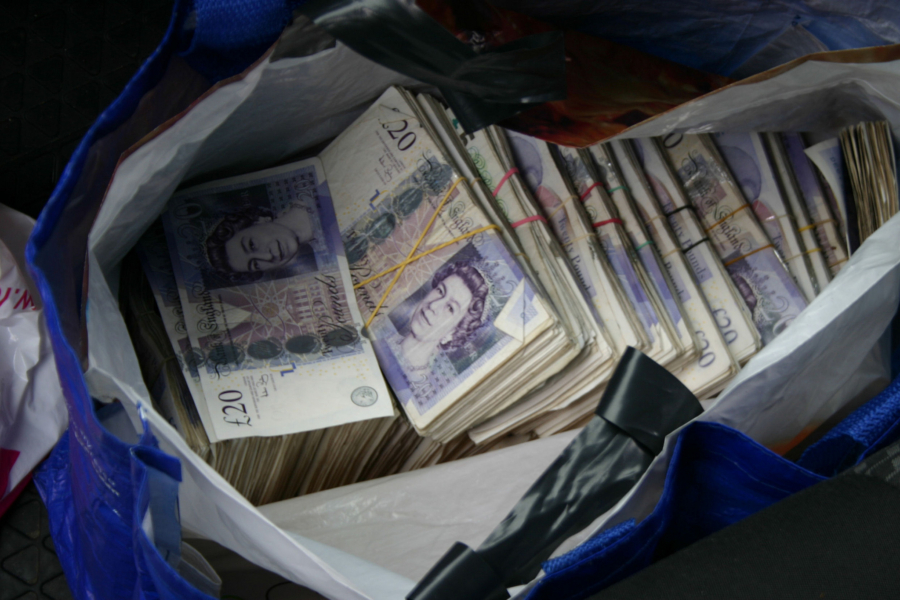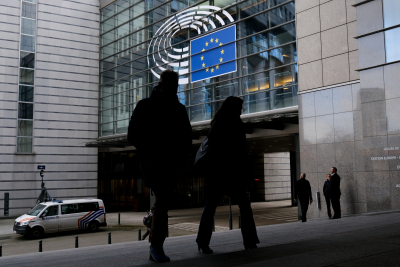Call for tenders
Application deadline: 16 March 2018
Purpose of Assignment
Produce a paper looking into the current and possible future role of the EU in responsible asset recovery in grand corruption cases. The paper shall in particular address the following issues:
– assess the state-of-play of EU legal and policy framework on asset recovery/social reuse of confiscated assets, identifying gaps and loopholes as well as legal, institutional and political obstacles to a greater role of the EU in asset restitution.
– provide a roadmap for future action identifying legislative/policy opportunities, assessing their likelihood of success, and clarifying key policy recommendations
The paper shall in particular focus on the final phase of asset recovery, i.e. restitution to and compensation of victims and look into the issue of victim populations’ rights. The project focuses on the specific case of asset repatriation in Uzbekistan. The roadmap shall therefore look both at legislative and policy opportunities for reforming the general EU asset recovery framework as well as possible case-specific opportunities / targeted EU instruments such as trade agreements or foreign policy instruments.
- Background
The project aims to explore the role the EU can play in facilitating responsible asset recovery looking at both the general EU legal and policy framework and more targeted instruments such as trade agreements or foreign policy instruments and how those could be used in the specific context of the case of asset repatriation in Uzbekistan. Research and advocacy efforts are pursued both at EU level and national level in relevant Member States where the proceeds of crimes committed in Uzbekistan have been laundered and have been or are in the process of being confiscated. To this end, Transparency International EU (TI EU) works in close collaboration with TI Belgium, TI Ireland and TI Netherlands.
The Uzbek case like a number of other grand corruption cases involves a clear European dimension considering that a significant share of the frozen or confiscated assets are held by EU-based banks and that investigations and judiciary procedures have a cross-border element. While the EU has shown leadership in its ability to strengthen standards on anti-money laundering and as such, to reinforce the preventive side of EU action against money laundering, this case demonstrates the responsibility of the EU to also take action in the subsequent stages of the corruption life cycle, i.e. the freezing, confiscation and responsible repatriation of stolen assets.
The latest developments in the Uzbek case are as follows: in July 2016, Dutch authorities ordered the confiscation of assets worth $ 135 million from Takilant, a Gibraltar-based company that prosecutors alleged was used by Gulnara Karimova, the elder daughter of Uzbekistan’s president, to collect bribes from telecom companies in exchange for Uzbek telecom licenses. Furthermore, in February 2016 and September 2017, two settlements were reached between U.S. and Dutch public prosecutors offices and the two European based telecom companies, respectively VimpelCom for $ 795 million and TeliaSonera for $ 965 million. The cases were settled through the deferred prosecution agreements procedure where these two companies recognized having paid bribes to Uzbek officials in exchange for telecom licenses. As a result, US authorities have opened procedures to seek confiscation of assets and accounts held in EU-based banks including in Ireland and Belgium.
- Project overview
This new advocacy project led by Transparency International EU (TI EU) in coordination with TI Netherlands, TI Ireland and TI Belgium aims at exploring the potential for the EU to emerge as a champion on responsible asset recovery. The project will focus on the Uzbek case and to the extent possible, will strive to draw lessons and identify policy options for such kind of authoritarian regimes with weak rule of law, as well as for countries with fragile democracies, for instance.
This advocacy project will draw from and complement previous and parallel efforts led by the global CSO coalition working on the Uzbek case. This includes the International State Crime Initiative, University of Ulster, the Civil Forum for Asset Recovery, Corruption Watch UK, the Cotton Campaign, Global Witness, the Open Society Foundation, the Organized Crime and Corruption Reporting Project, Public Eye, Sherpa, and The Uzbek-German Forum for Human Rights.
The moment for carrying out such project is particularly timely in light of recent developments on the case including the recent settlement reached between US authorities and Teliasonara in September 2017.
- Project objectives and activities
With this present project, TI EU aims to achieve greater support for an EU policy response to responsible asset repatriation both at EU and national levels.
To achieve this long-term goal, the project will pursue the following objectives:
- Increase understanding and knowledge of obstacles to policy change for responsible asset recovery at EU and national levels
- Increase understanding and knowledge of possible policy options to responsible asset recovery at EU and national levels
- Identify key stakeholders in relevant European, national and international institutions
- Increase awareness among EU and national government officials of obstacles to policy change and policy options to responsible asset repatriation both at EU and national levels
- Influence/create policy debate and push the issue of responsible asset repatriation on the EU policy agenda
- Scope of Services
The primary tasks of the consultant will be to produce a report assessing the state-of-play of EU legislative and policy framework and providing a roadmap for action to feed into the project advocacy activities.
- Produce a report assessing the state-of-play of the EU asset recovery legislative and policy framework and providing a roadmap for action to serve as a basis for the project advocacy work. The report paper should
- Provide an overview of the current EU asset recovery legislative and policy framework. This shall include clarifying the scope of current EU action in this field, i.e. mapping of current policy instruments, legal basis for an EU intervention in this field, responsibilities, as well as remaining gaps and loopholes.
- Develop a roadmap for action articulated around the identification of:
- key legislative and policy opportunities (i.e. appropriate legal basis, existing legal and policy instruments, ongoing or future legislative processes, etc.)
- key policy recommendations
This exercise will involve taking stock of existing international standards and country practices, identify possible legal, institutional or political obstacles for further EU action in this field (e.g. lack of legal basis, EU vs. MS competence, etc.) in order to assess the likelihood of the different legislative/policy options to achieve positive results.
- Consult with members of the CSO coalition working on the Uzbek case and other key stakeholders as may be relevant
- Participate and present the first draft of the paper during a Brussels-based experts’ meeting to be organised as part of the project in Spring 2018 (exact date TBC)
- Integrate comments and feedback received during the experts’ meeting and consultations with members of the CSO coalition and other key stakeholders
- Participate and present the final report during a public Brussels-based event to be organised in the second half of 2018 (exact date TBC)
- Liaise with the Transparency International EU Office (TI EU) project coordinator on the production of the report
- Outputs / deliverables
The primary output will be the final paper (approximately 20 pages)
- Timeline & Reporting
The consultant will complete the tasks according to the following timeline. The timeline is indicative and the exact timing of publication of each of the reports can be agreed with the researcher at the start of work. In conducting his/her work, s/he will report to the TI EU project coordinator.
| Tasks | Role of Consultant | Timeline |
| Signing of contract | Sign | 1st April 2018 |
| Production of the first draft of the report | Prepare | April – June 2018 |
| Participation in experts’ meeting | Participate and present the draft | June 2018 |
| Consultations | Consult with members of the CSO coalition and other key stakeholders | June-September 2018 |
| Finalisation of the report | Integrate comments and feedback from participants in experts’ meeting and consultations | June – October 2018 |
| Participation in public event | Participate and present the report in public event organised as part of the project | October 2018 |
- Tendering process
Tenders should be submitted, along with a recent sample of comparable written work and the CVs of the researcher(s), at eutenders@transparency.org by 12.00 midday (CET) Friday 16 March 2018.
Offers in the range of €15,000 will be considered (inclusive of VAT)
Tenders will be reviewed by a panel of TI officers according to the following criteria:
- Experience and track record of consultant
- Knowledge of existing international and country standards and practices in asset recovery, in particular with regard to responsible repatriation to and compensation of victim populations
- Experience and knowledge of EU law and policy processes and instruments, in particular as they relate to asset recovery issues
- Independence
- Value for money
- Quality of offer




